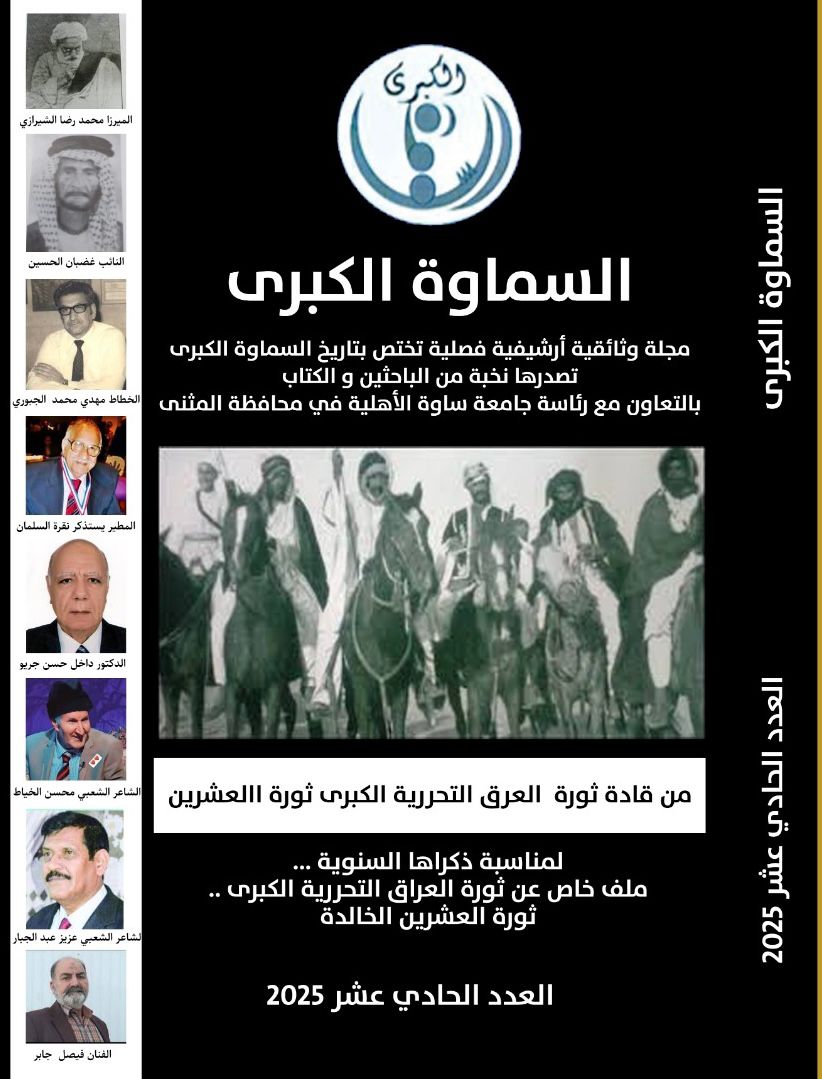The Eleventh Issue of Al-Samawah Al-Kubra Journal of Academic Writing about Samawah
The eleventh issue of the quarterly archival documentary journal, Samawah Al-Kubra Journal, published by Sawa University in collaboration with a select group of researchers and writers, has been published. Regarding this issue, the Chairman of the Journal's Board of Directors, Dr. Mudher Abdullah Abdulaali, said:
At a time when transformations are accelerating and cultural and social maps are intertwined, Al-Samawah Al-Kubra Journal confirms that the memory of cities remains indelible, guarded by writing and protected by the pens of researchers who revive it, not with clay or stone, but with narrative and scientific investigation. From this standpoint, our journal, as it enters its eleventh issue, emphasizes its epistemic mission of celebrating the city as a vessel for history and a fertile ground for research, contemplation, and analysis.
He emphasized that the city of Samawah, with its deep history and its social and symbolic dimension, is not just a geography extending along the Euphrates River, but rather a text open to interpretation, requiring solid scientific tools to understand it, and a research will that goes beyond the surface to the roots. Hence, the importance of academic writing about Samawah, by researchers from its sons and from the original Iraqis, is not as a cultural luxury, but rather as a cognitive commitment within the framework of higher education in Iraq, and the plans of Sawa University, as the university, as a scientific institution, meets with the city as a subject for thought, writing and documentation. In this context, our university plays an advanced role in stimulating scientific discourse about the city’s identity and its historical paths, based on a vision that believes that the university is not isolated from its society, but rather an active part in shaping its awareness and reproducing its symbols. Every writing about Samawah, if it emerges from the tools of disciplined academic research, contributes to the formulation of an accurate collective memory and resists the erasure or marginalization of history. As we open this new issue of the magazine, we emphasize the ongoing call to make local history part of a broader national academic project, to which universities, researchers, and research centers contribute. This is not as a chronicle of forgotten places, but rather as a recovery of the human self in Samawah through a scholarly reading of the city, open to analysis and documentation. He added: "We say that in this magazine, we write about Samawah not only to document the past, but also to illuminate the future. Knowledge of history is the essence of vision, and it is what gives us meaning in a changing world. However, it tells us that some cities, like Samawah, remain essentially unchanged because they are cities made of clay, spirit, and authentic human love that we revive with words.

